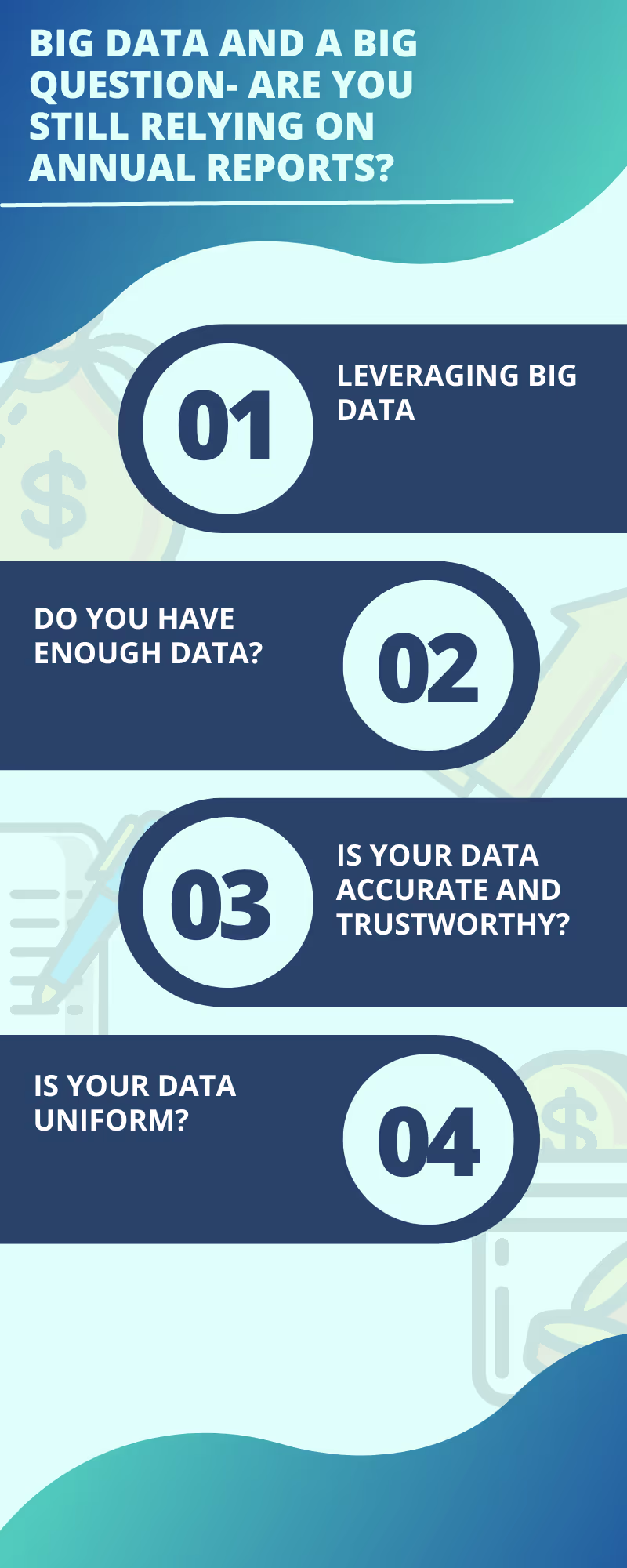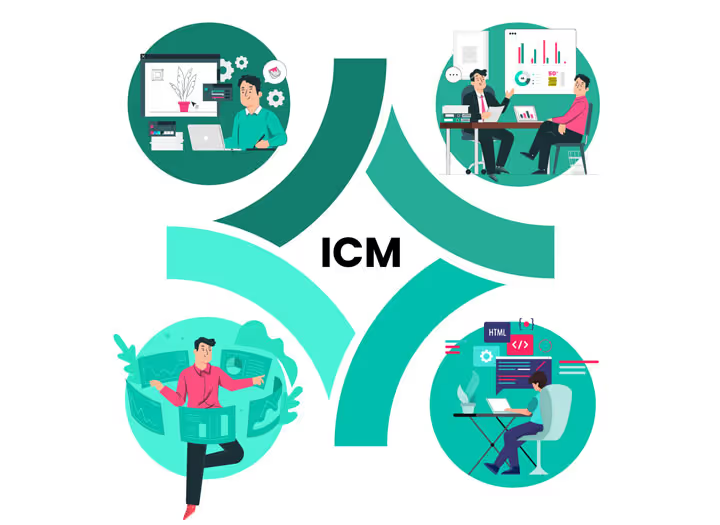
Blog
Big Data and a Big Question- Are you still relying on annual reports?
July 27, 2022


Key Insights
Modern markets demand sales managers who are bold with their strategies. In an article written for the Harvard Business Review, author Steve W. Martin points out that 69% of salespeople who exceeded their annual quota rated their sales manager as being excellent or above average.
The conclusion that should be drawn from this study is simple- an excellent sales manager armed with valuable insights can lead the sales team toward higher turnovers.
If you are a sales leader, you are no stranger to the go-to mantras- experiment with new ideas and discard what does not work, hire the right people or build better communication channels. As uncomplicated as these may sound, there is a catch!
There is no denying that the role of a sales leader is becoming increasingly challenging day by day. Growth leaders are faced with the daunting task of achieving aggressive goals in a remarkably short period of time to combat cut-throat competition.
The truth is that most leaders struggle to keep up with this changing demand of the role resulting in an exhausted sales team with a significantly low output when using traditional approaches to selling.
So what can you do to deliver the perfect platter of valuable insights, accurate forecasts, and a strategy that works in real-time?

The answer is simple- a data-driven approach backed by frequent and efficient reports!
Leveraging Big Data-
The difference between a sales plan that works and a sales plan that does not work is data! Data can help you:
- Find new leads
- Retain your existing clients
- Ramp up your marketing efforts
- Make better predictions
- & many more.
Let’s be clear though - not all data is good data. Ask yourself these three simple questions to make sure that the data you are collecting is the perfect raw material for a successful plan-
Do you have enough data?
There’s a reason why it’s called Big Data. The aim is to be comprehensive. To collect as much data as is needed for creating a plan that works. The data that you are feeding your CRM needs to be gap-free and have all the relevant information, including examples of sales objectives. Remember, the end goal is to have a data set large enough to be turned into actionable insights.
Is your data accurate and trustworthy?
It’s one step forward and two steps backward if you have enough data but do not trust it. In fact, 84 % of CEOs don’t trust the data that they are basing their decisions on according to Forbes. All it takes is one wrong keystroke! Try to minimize errors by reducing manual input and automating your data capturing process.

Is your data uniform?
Think of it this way. Two sales reps may use their own phrases for a similar scenario. One rep may say that your product was ‘too expensive’ while another rep may choose to say a ‘competitor was cheaper’. Simple issues like these may lead to a heterogenous set of data that is hard to work around.
The Ultimate Red Flag- Annual Reports!
You have the Big Data. But the big question is- what to do with it? A drill-down approach to devise a data-driven strategy is necessary. Questions like these can be addressed-
- Do you have enough reps?
- Are your reps able to meet their quotas?
- Are your incentives motivating your reps?
- Do you have the right software to predict payouts and future ‘what if’ situations?
- What are the visible trends and patterns?
The elephant in the room is that for most companies, sales planning and reporting is still an annual process! There are reasons for that- it is a time-consuming task and most companies still rely heavily on manual processes to make these reports.
Often, reports are made months after a financial year ends. And even when they are available, they are not audit-ready, making it hard for finance teams to work on them.
It is therefore impossible for sales leaders to take bold decisions like changing their incentive compensation plans. This static approach can stifle business growth significantly. Sales leaders need to look at the macroscopic impact of inadequate reports and then make microscopic changes in the way data is collected and analyzed.
How can Automating your ICM help?
An automated solution with integrations across CRM, ERP, and HRIS can provide sales leaders with the bandwidth and resources to make bold and quick decisions by providing real-time insights that drive sales behavior. A no-code sales comp plan designer can significantly reduce workload and fix the gaps in broken ICMs.
To know more about how Incentive Compensation automation can help you build a data-driven strategy designed to win, book a demo with us!
ReKennect : Stay ahead of the curve!
Subscribe to our bi-weekly newsletter packed with latest trends and insights on incentives.
Thank you! Your submission has been received!
Oops! Something went wrong while submitting the form.
Your data is in safe hands. Check out our Privacy policy for more info















